Underground resistance organisations appeared in the ghettos of Vilnius, Kaunas, Šiauliai, and Švenčionys at the beginning of 1942. Young, active Jews chose to fight against deadly enemies: the Nazis. Women were also among the founders and fighters of those secret organisations. When WUthe hopes that resistance was possible in ghettos collapsed, members of underground organisations retreated into the forests for an armed guerrilla struggle, leaving their parents, children, and other family members in the ghetto. People who had escaped or had been rescued from the ghetto also hid with the help of the local people keeping their Jewish origin secret. They were completely dependent on the conscience, solidarity, and empathy of their rescuers.
For young girls, the choice to leave was especially difficult as they all faced the dilemma: what was the right decision in the face of death?
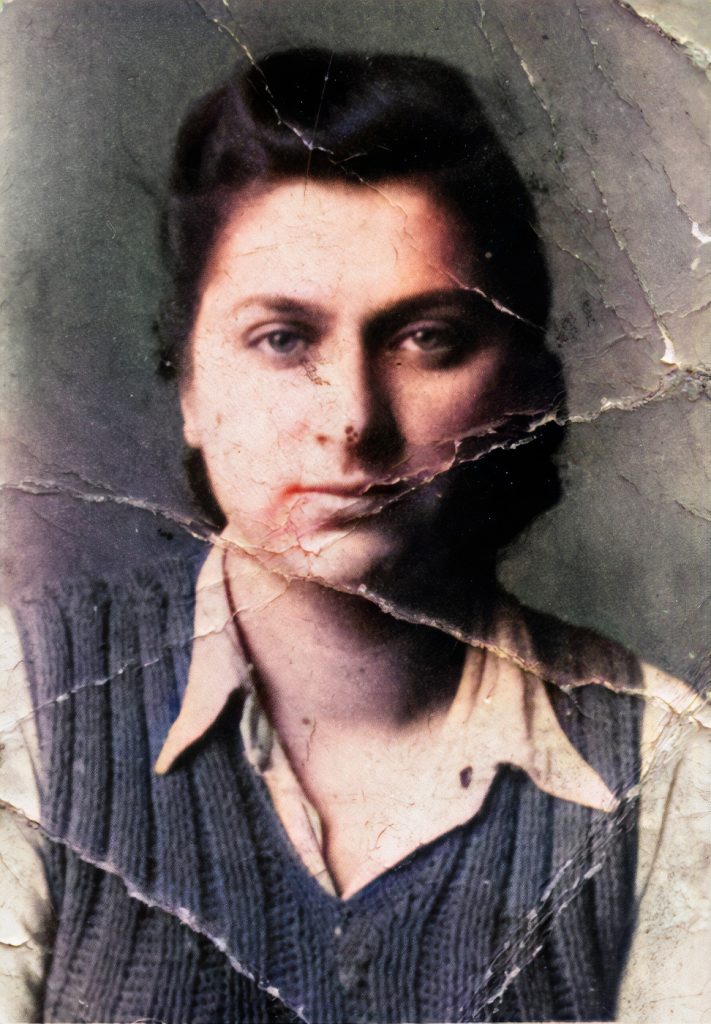
“I came home. I told my parents I would probably go to the partisans. [My mom] sewed the star on me the way I could tear it off very easily. Mom also [prepared], I remember a portfolio, which somehow remained. A kind of a handbag. I had a friend who as soon as we got into the ghetto gave me a bottle of perfume or eau de cologne on my birthday because his family owned a perfume shop before the war. I also took a towel, a [blue] blouse I knitted myself and my mom had some [cooked] peas. And after about half an hour, Doba [Doveltov] came and said there was a chance to get out of the ghetto […]. And I said goodbye to my parents, sister … And we went out …”
Fania Yocheles-Brancovskaya
Fania Yocheles-Brancovskaya, 99 years old. Prisoner of the Vilnius Ghetto, a member of the
underground organisation of the ghetto FPO (in Yiddish – Fareinighte partizaner organizacie), and
a fighter of Jewish partisan squad ‘Avenger’ in the Rūdninkai Forest.
Fania Yocheles, 1943. From the personal archive of Fania Yocheles-Brancovskaya.
“Only fear and sadness on my mind. It was awful to leave without saying goodbye to my family. It was frightful to leave the [Vilnius] ghetto where I had been living hopelessly for a year and a half although it seemed [like] for ten years […] we left not to survive but to fight and lose our lives. We could not take our brothers, parents, adolescent children together. […] I was tormented by the thought: I did not say goodbye! But how could I – after my father told me he would report us to the police? Later, when I was already in the forest, I was told that my father had come to the library to look for me, and only when he saw that there was no [my] toothbrush, he realised that I had gone forever. I was less than 22. I never saw my parents again. I became an orphan the moment I left, and I am still tormented by the thought that if I stayed there maybe we would have survived […], maybe we would all have been alive.”
Rachil Margolis
Rachil Margolis (1921–2015) – prisoner of the Vilnius Ghetto, a member of the underground organisation of the ghetto FPO (in Yiddish – Fareinighte partizaner organizacie), and a fighter of Jewish partisan squads ‘Avenger’ and ‘Vilnius’ in the Rūdninkai Forest.
Vilna Gaon Museum of Jewish History
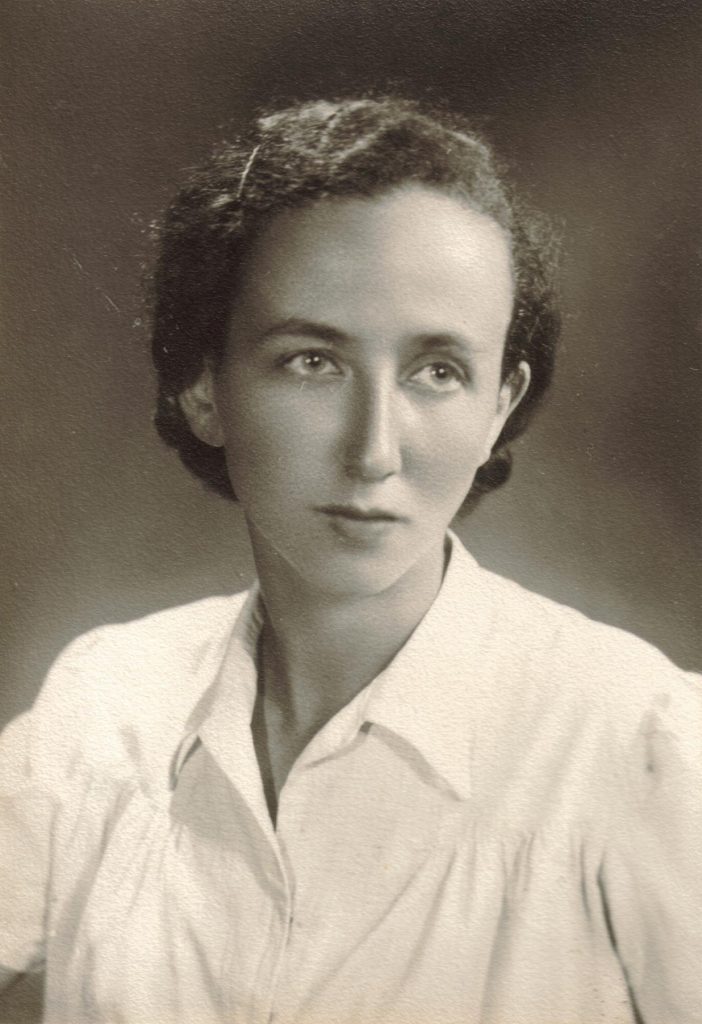
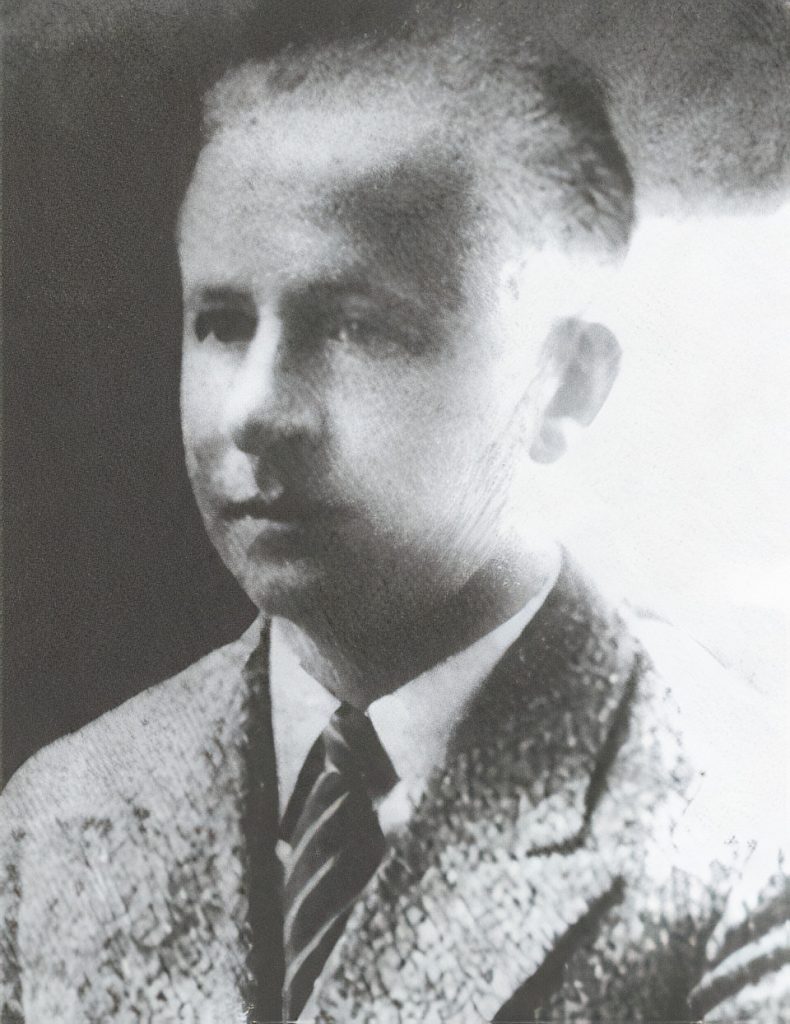
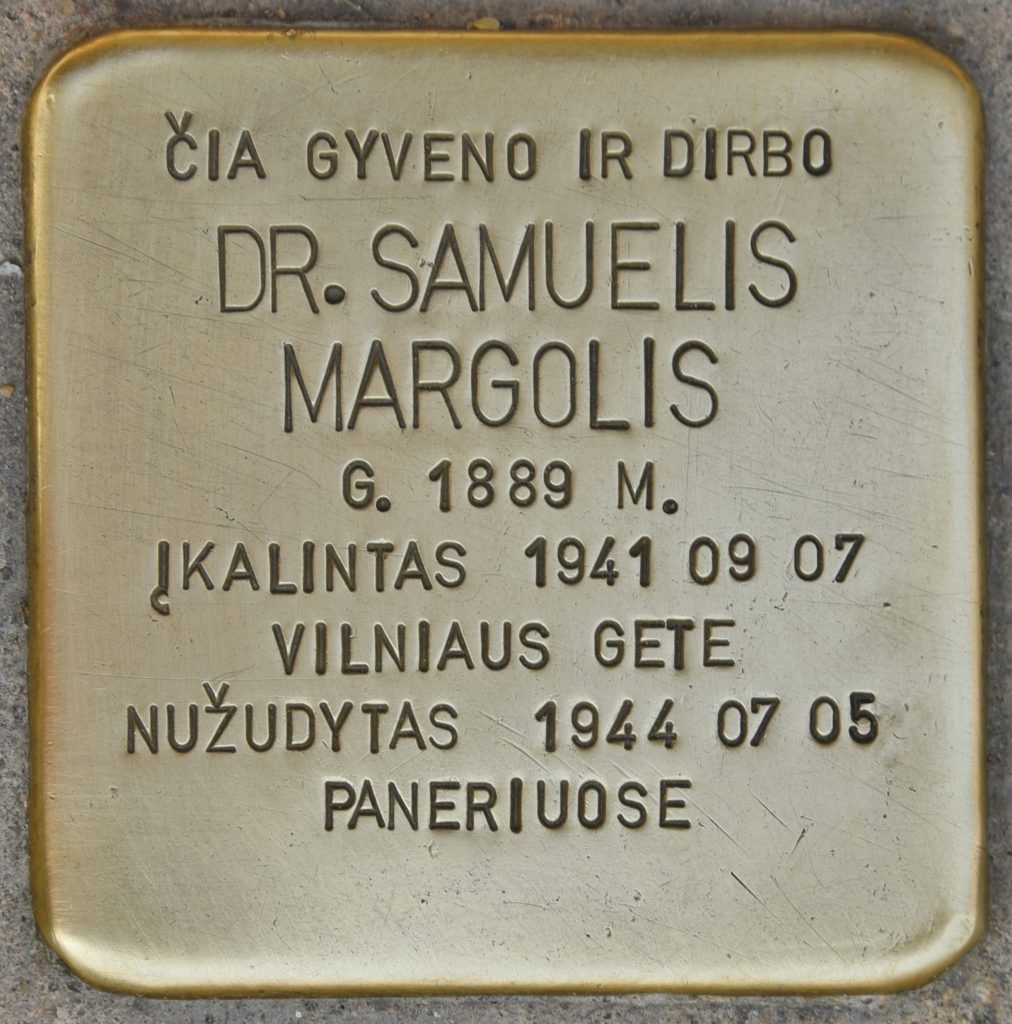
Atminimo akmuo gydytojui Samueliui Margoliui Vilniaus g.
33/Islandijos g. 2, Vilniuje, sankryžoje
Viliaus Mateikos nuotrauka
Gydytojas Samuelis Margolis
Рахиль Марголис. Немного света во мраке. Вильнюс,
2006
“I was informed about my escape with Misha from the [Kaunas] Ghetto to the Rūdninkai Forest at the beginning of December [1943] and told my mom about it. She cried and rejoiced in the hope that I would succeed in my salvation. I considered myself a traitor for leaving my mother to fate. I was very confused in those days. It seemed that it is not fair that I would leave my loved ones, and that I had no moral right to leave them. Two conflicting feelings struggled in my soul. One demanded to go and fight the enemy, and the other persuaded that I should stay with the family, take care of them and die or survive together – whatever the destiny.”
Sara Ginaitė-Rubinson
“Mom prepared what was necessary. She would have given us not only more bags but also her heart, and her life experience. I took a few old photos and continuously repeated: ‘I’ll definitely be back, I’ll find an opportunity to get back to the ghetto at least for a while, you’ll see’. Mom looked at me sadly and probably thought that I was still a child and my mind full of illusions..”
Sara Ginaitė-Rubinson
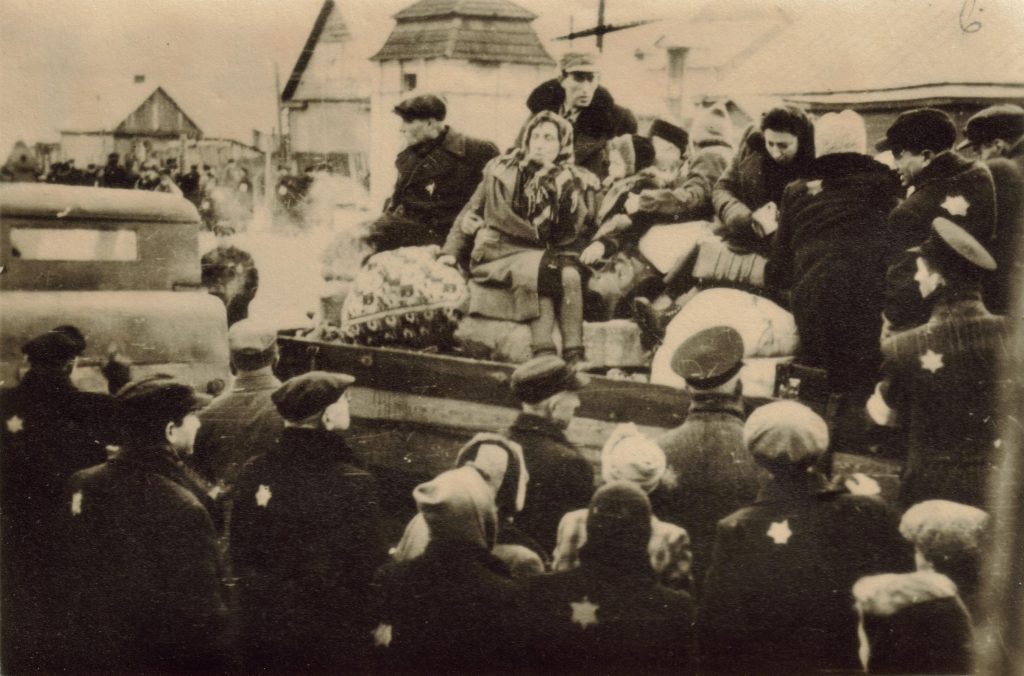
Deportation of the Kaunas Ghetto prisoners to the Nazi concentration camps in 1943-1944.
Vilna Gaon Museum of Jewish History
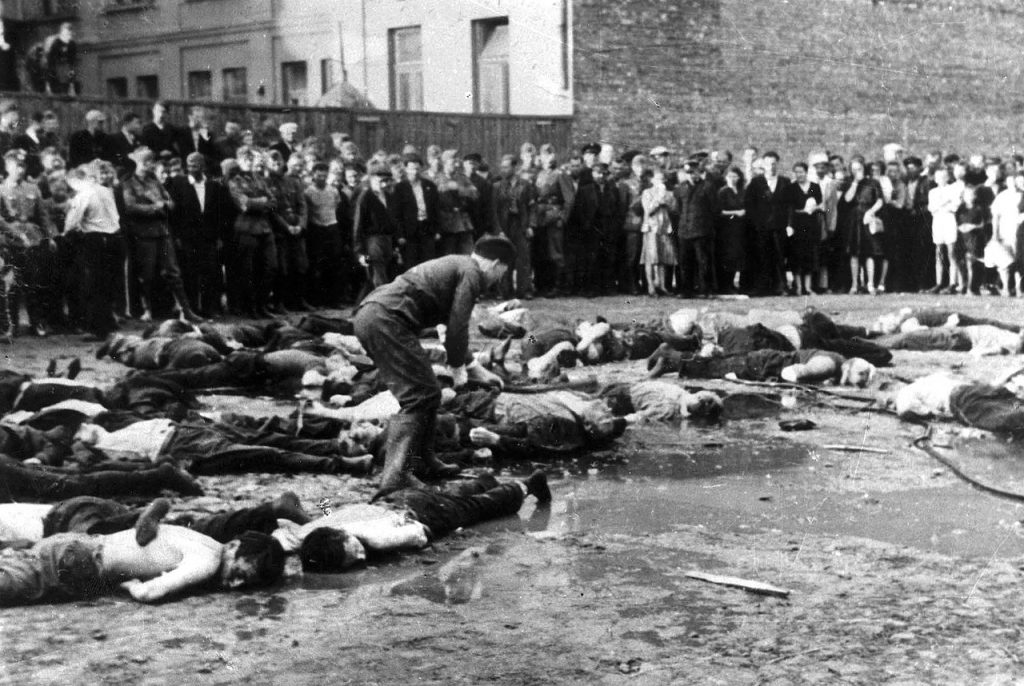
“All my life I lived with my mom’s story. I’m so tired of it.”
The daughter of a Holocaust survivor
“My grandmother talked about it. But you know, people talk but they don’t tell you everything. And I think she had her own story and told it. Nevertheless, there were things that she would not tell, I think.”
Judita Gliauberzonaitė, the granddaughter of a Holocaust survivor
Pogrom of Jews in the ‘Lietūkis’ garage, in Kaunas, initiated by Nazis and executed by the local
Lithuanian Nazi supporters while the city residents watched. Kaunas, June 27th 1941
Vilna Gaon Museum of Jewish History, Holocaust Exhibition